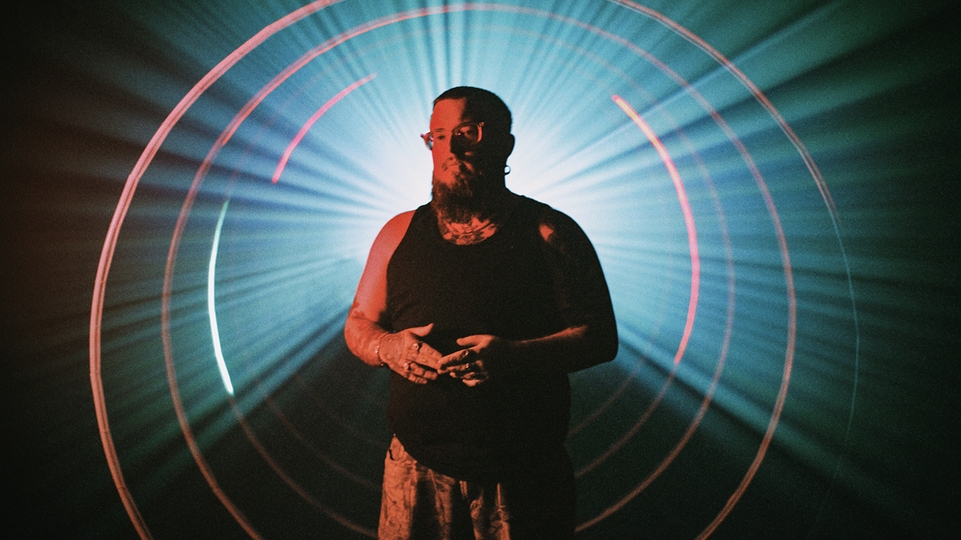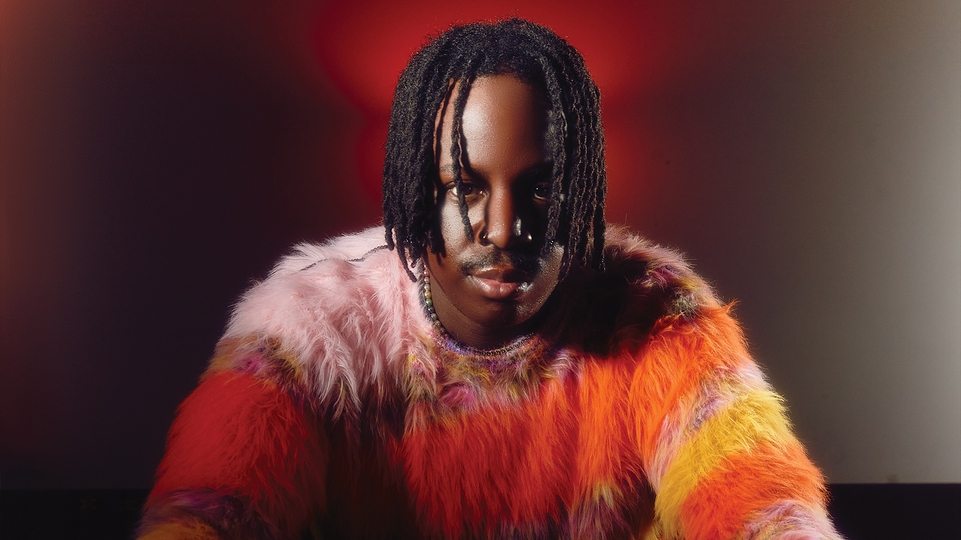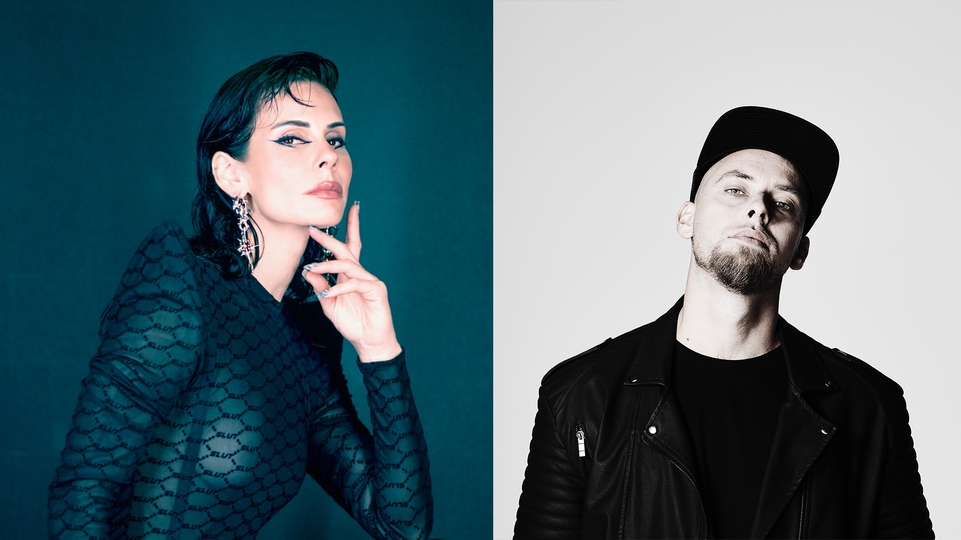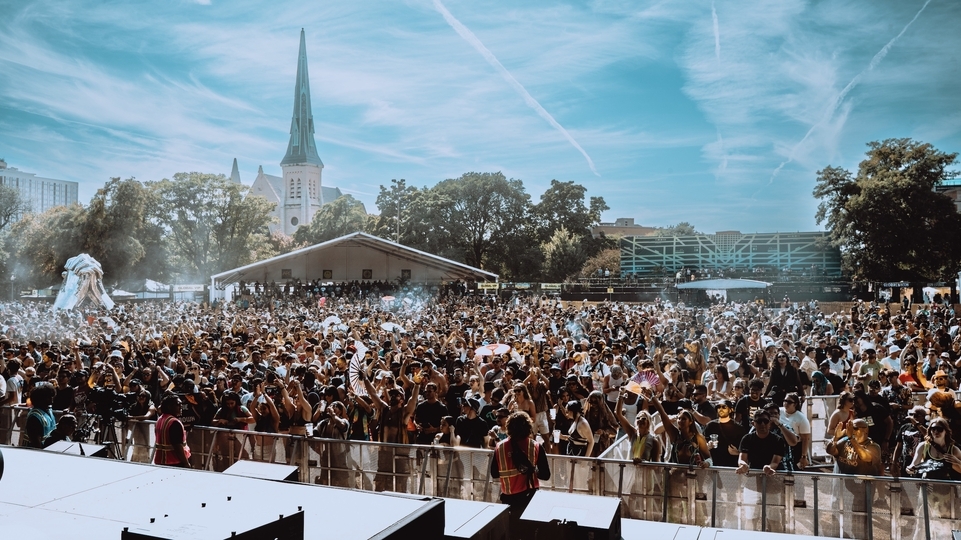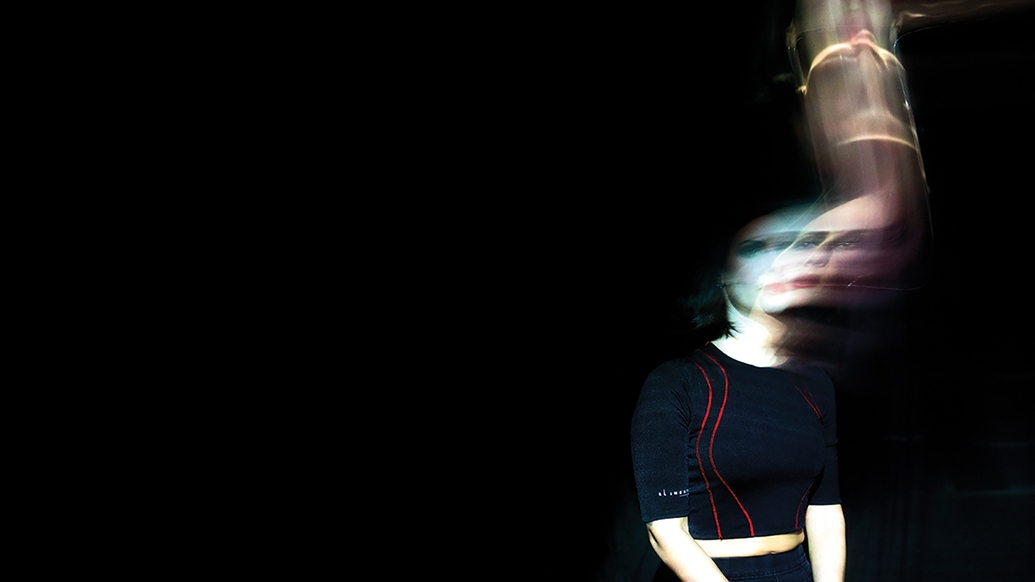
The haunting techno of Rebekah
Birmingham-via-Berlin’s techno stalwart Rebekah has conquered her demons to become one of the most in-demand DJs and producers out there. Winner of our Best Of British Best Producer award, we find out how a life of ups and downs, and a belief in her first youthful inspiration, has taken her to the top...
Pics: FIONA GARDEN
It’s 1997 and a 17 year old Rebekah Teasdale is just finishing work at a French restaurant in the centre of Birmingham. With 30-odd pounds worth of tips in her bag as she steps out into the cool night air, she fixates on the crowd of people waiting to get into the nearby Que Club. Towering above her in its home of an ornate former Methodist church, she’s passed it night after night, fascinated since she started DJing a year ago. After sampling the city’s house clubs, such as Wobble and Bakers, tonight she’s joining friends to go to Atomic Jam for the first time, not really aware of what to expect. Inside, she’s greeted by a huge amphitheatre, still kitted out with a church organ, mezzanine levels reaching up and up towards a distant ceiling.
As she sits down on some steps to listen, though, it’s the music that hits her. Dave Clarke is commanding the main room, cutting and scratching between tracks which are pounding the speakers with an energy and intensity she’s never heard before. There are no vocals, but when a hi-hat drops, the locked-in crowd cheers with rapt delight. Billy Nasty follows, somehow taking everyone into even harder and darker territory. “What music is this?” asks Rebekah, totally mesmerised. The answer, it turns out, is to be her lifelong calling: techno.
Twenty-one years later, she’s inspiring a new generation with a similarly uncompromising sound, and hosting a Rinse FM show, running her label Elements — which encompasses music, visuals and soon a clothing line — and playing the world’s biggest events, such as Awakenings. She’s one of the figureheads leading the revival of industrial-strength techno, although her versatile DJ sets often include all manner of grooves, from acid and EBM to electro. Alongside this, she’s established herself as a producer. After returning to college to study production, when her early career was stalling in a haze of partying and frustration at her musical direction, ‘Fear Paralysis’, her 2017 debut album for Soma, showcased a touch for techno’s melding of (wo)man and machine, pouring encoded emotion into an exoskeleton of four-four techno and broken beats. It’s an achievement that she’s followed by being voted Best Of British 2018’s Best Producer.
“I got propositioned,” laughs Rebekah on why she moved to Berlin in 2013, as we sit down in a North London Wetherspoons, the winter light fading outside. At 5’1”, she’s short, but has the presence of the techno world traveller, with dyed black hair and an all-black outfit. In what comes to sound like a previous life, she’d once lived in London at the start of the new Millennium, chasing the dream of being a DJ, but as it began fading away, she returned to Birmingham in 2004 with the acknowledgement that “I could get a three bedroom house with a garden and garage for literally the same price I was paying for a shared apartment in London.” Then, before she’d even sat down at a meeting she’d arranged with him there to put a name to a face, Michael Weicker from DJ agency Artist Alife, who was also CLR’s label manager, suggested that she move to Berlin. The catalyst had been her 2012 remix of Matador’s ‘Blond Slackers’, a six-minute groover filled with charged rave stabs and the profound influence of yet another iconic techno temple.
“When I had that remix sitting in my lap, I went to Berlin for the first time and spent five hours in Berghain,” she says in a calm, quiet manner that often breaks into a giggle, on what became her baptism into a new life. “After that, I knew what I needed to do with it. That was my break as a producer.”
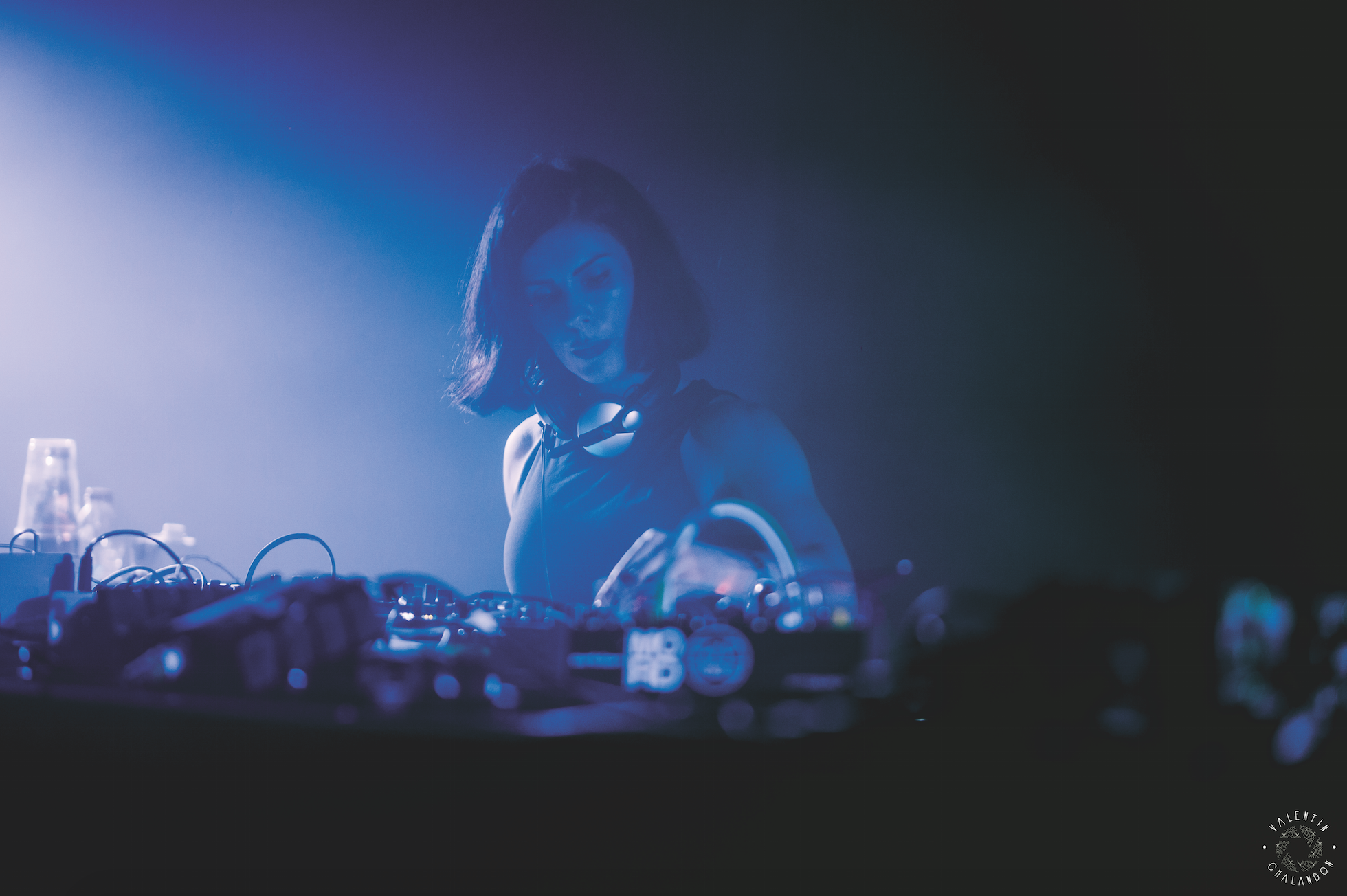
ENVIRONMENTAL FACTORS
It’s testament to Rebekah’s ear that she articulates just how techno’s cavernous surroundings, of old warehouses, factories or churches, have shaped it. Talking about the sparse but enormous sounding, heavily reverbed style that dominates much of modern techno, she references David Byrne’s book ‘How Music Works’, where he points out the intrinsic relationship between music and the venues it’s played in. “In cathedrals, where they have big organs, they play very long notes, which some people perceived as primitive,” she says. “But it’s because you can’t play faster notes, the reverberations are too long. It has to be slower. Music is generally a product of its environment.”
It explains why the post-Soviet backdrop of Berlin, with its playground of giant abandoned buildings, was primed to become the new techno mecca, twinned with the sound that emerged after Detroit’s industrial collapse. With Regis, Tommy Four Seven and Alan Fitzpatrick helping pass her remix on to their peers, Chris Liebing, head of the industrially minded, Berlin-based CLR, asked Rebekah to record episode 170 of his CLR podcast in 2012. “It slowly moved into me sending him my music,” she says. “Then he said, maybe we’ll do an EP.” The offer to move to join CLR was initially daunting: Rebekah was in debt, working front of house at the Apple Store to pay these off. At the same time, however, Michael was offering her a place on the agency. “That was always my dream, to be part of a label and a crew. I DJ’d a long time on my own, and really wanted to have a home, to play with the same people and build something.” Within six weeks she was there, the reality sinking in that she didn’t really know anyone and hadn’t counted on the bitter cold that set in over the German winter.
It’s a move she doesn’t underestimate the importance of. “It launched my career and gave me the platform I needed,” she says. “Having an EP on a really prestigious label, it was a big statement.” Between 2013’s ‘Cycles’ EP and 2015’s ‘Distant’, you can hear the subtle shift in her sound, the former built around booming kicks, the latter tighter and more sinister, straight four-four mixed up with more complex kick patterns. Understandably, then, she felt wrong-footed when the label was put on hiatus in 2015 so that Liebing could concentrate on an album, a move she nevertheless understood, given how long he’d been trying to write it while always putting other people’s music first. “I thought we had more to say as a label, and the music was only slowly starting to be taken on,” she says, adding positively that: “It’s not ended, it’s just ended for now.”
UNCERTAINTY
With her career beginning to finally move in a direction with which she was happy, suddenly she was plunged into a period of extreme uncertainty. It was a situation she’d been in previously. Around 2004, Rebekah had left Serious, Judge Jules’ agency, who she’d been with since starting out DJing professionally in her late twenties. Having cycled through various styles of house, then into tech-house and minimal techno, closer to what she wanted, she’d never quite found her feet. One night playing at The Cross, the London club that closed its doors in 2009, she asked herself, “What the fuck am I playing?”
“It was never the right vocals for the crowd,” she retells on what had become an endless game of second-guessing, neither she nor the crowd ultimately ever satisfied. “They just wanted to hear the big anthems. I wasn’t willing to do it. Literally in the middle of my set, I lost all my heart and just said, ‘I’m not doing this anymore’.” Emotionally broken, for six years Rebekah carried on DJing, moving into minimal, tech-house then techno, but was still struggling to make headway. The shift finally came when she curbed partying, got a day job and just “let everything go. I didn’t care about DJing, I just made music. I let go of my control and it was really nice, because I just made music that I liked, rather than thinking about this label or that label.” Referencing the powerful lingering memories of her teenage moment of hearing techno for the first time, the sound that crystallised from her distilled creativity brought her to CLR. By putting CLR on hold to work on his own album, Liebing inadvertently laid the foundations of Rebekah’s too, as she channelled her emotions into music again.
Having previously done a remix for Glaswegian techno institution Slam, Rebekah then met the whole Soma team at ADE in 2014, and had continued to send them music. With a newfound productivity pouring into their inbox, suddenly they wanted it all. “That’s how they ended up with the album,” she says, still bemused. “They were just so positive about my music.” Like much of her musical output [see A Number Of Names box out], ‘Fear Paralysis’ wears its heart on its sleeve. Shape-shifting through techno, electronics and broken rhythms, its melodies reach out and connect with the living, organic nature of sonic synaptic tendrils. The rain-soaked ‘Requiem For A Dream’ captures the bittersweet euphoria of Brian Eno’s ‘An Ending (Ascent)’, while ‘Breathe’ switches between cloying claustrophobia and palpable relief. Even the pounding ‘For The Last Time’ exudes emotion, with its hot-faced flush of anger and frustration. “When I listen back to it, it’s got this sadness to it,” she says on the project, still. “To me it was cathartic.”
Perhaps it also resonates with the darker times that preceded everything. “There was a bizarre moment when me and Glenn the Soma label manager realised that we’d met back in Miami,” she says. “We’re both pretty straight now, but we had that moment of recognition when we realised that we’d partied together around 2000. It’s super nice to be working together 18 years later.”
AFTER PARTYING
‘Partying’, the modern day euphemism for the excesses that go on for hours, if not days, after the actual club has finished is something that Rebekah has spoken about before. Now sober for eight-and-a-half years, we accidentally discover a video interview with her from 2000, the year she mentions. Unrecognisable with short cropped hair, she shifts about on her seat with a nervous energy that has now gone, retelling a gig when she was so drunk supporting Brandon Block that someone labelled her ‘the female Brandon Block’.
“My career was nowhere,” she says of the point when she decided to stop, feeling suddenly that the only place to go was up. “I was literally doing a gig here and there. I was really angry and jealous of everyone else. It’s a place lots of artists can find themselves in, if you’re not willing to take responsibility for where you’re at. How can I change? How can I get to a better place?” As with the break-up of CLR, what saved her was making music.
Shortly before sobering up, she’d completed two years studying music production at Access Creative College Birmingham. It was another attempt to get on a track she was happy with, previous sessions working alongside more experienced producers never quite letting her articulate what she wanted. Still, “getting smashed every weekend” was putting the kibosh on any progress. It was almost impossible, by now, to separate the music she had once loved from the experience of peeking out the curtains on another sleepless Sunday, questioning everything. The course, combined with sobriety, gave Rebekah the discipline to finish music. “After two gigs DJing sober, I had the realisation I didn’t have to take drugs anymore. It was a light-bulb moment, and from then forward, it was complete freedom.” Having publicised her struggle, she’s sometimes contacted by those in a similar position, wondering, despite clearly considering stopping, if they will enjoy DJing without the lifestyle that’s sometimes sold alongside it.
“Get help if you really need help, there are lots of support groups out there, take a break and don’t put yourself in situations where you’re needing to take drugs or relapse,” she advises. “I don’t go to after-parties as a rule. I’m OK if people are in the club getting lost on drugs, because for me that’s the right place to do it.”
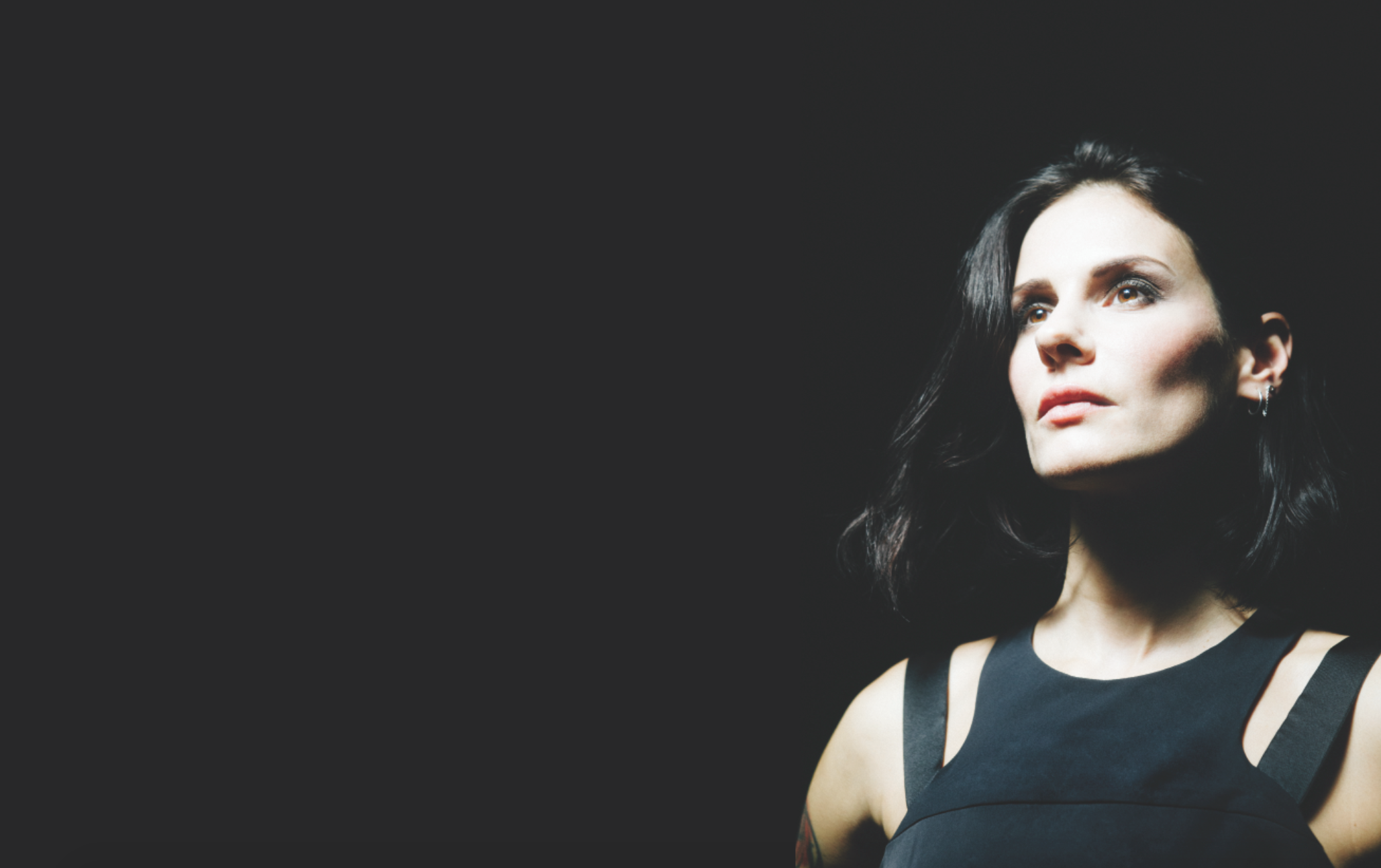
The clichéd ‘music is my drug’ is not a phrase that Rebekah utters, but it’s clear that once drugs were no longer her drugs, she finally began to thrive, as in the swirling energies that the extremities of techno offers. It was a return, she says, to the excitement of hearing Surgeon and Regis at their most noisy in the ’90s, of popping her head into Atomic Jam’s acid techno room to witness the relentless Stay Up Forever ethos of The Liberator Crew, or wandering shell-shocked around Midlands free parties, where gabber would be blasting out alongside the deeper, housier grooves of DIY Soundsystem.
Her label Elements, which launched in 2014 with a trio of her own tracks, is her vision to further flesh out the spirit of this golden age in a modern context. Techno isn’t simply about the music, she believes, it’s also about a specific kind of venue and within that, a particular aesthetic style. “For me, techno is about a dark basement or warehouse, it’s about minimal lighting,” she says. “When I was first going out in the ’90s, there were weird visuals, things that made you uncomfortable, because the music is quite sinister as well.” Finding herself often surrounded instead by beautiful, but incongruous, LED lighting displays, with Elements, she’s worked with Belgian artist Malika Maria to create a specific label look that draws on gothic horror (check the video to ‘Serrated’ on the label’s first release). With a dedication to pushing boundaries in the creation of this work, across still photography and video, Maria’s boyfriend was bitten three times when they involved a snake in one shoot.
These visuals were used for the series of label parties which took place in Birmingham, the last of which was in March 2018, Rebekah joined by a line-up that included Ansome and Dark Chambers, the latter one of the people who she started out producing with. Her conclusion, however, has been that “the crowd is not necessarily there for this kind of techno” for now, with parties in the city that inspired so much of what she does on hold for now.
GNARLIER
Instead, she’s been playing across Europe, on her own and with Elements, where bpms have been getting steadily faster, and sounds gnarlier, as a new generation also delves back into its past. “Holland really loves it,” says Rebekah of the dance music giant’s taste for the more industrial. “You’ve got the Rotterdam hardcore and gabber scene, which is really consistent. Utrecht seems to be the most popular place for this sound right now. Spain has a history of fast techno too. For a long time, they were really into minimal, but now it seems they want it harder and faster again.” France too, especially Paris, is alive with illegal warehouse raves, the fixtures rattling to pounding techno, and there are unexpected movements happening everywhere. “Places like Luxembourg, where you’d think, what’s going on, but they’re doing forest parties. People are taking matters into their own hands, veering away from the expensive clubs and doing it themselves.”
If you want an example of the Dutch appetite, then head straight to the live streaming of Rebekah’s back-to-back set with Paula Temple from Awakenings at ADE in 2018. Describing it in the YouTube comments as “our full power rave set”, the pair deliver a hammering 140bpm ride through pounding drums, distorted bass and sinister leads building up to moments of release. It was the culmination of a series of back-to-back gigs in an alliance forged over a different kind of cardio workout: cross fit training.
Having connected online around 2015, the pair had played on a few line-ups together. But when Temple, who also lived in Berlin, was going through some tough times, Rebekah suggested she join her at the cross fit class she was going to in 10 minutes. “It makes you feel really good, puts you in a good headspace where you can focus on music, and you get fit really quickly,” she enthuses, adding that she’s currently being hindered by an injury. Temple did, and so they became workout buddies. It was during one cool-down that the idea for playing back-to-back came about.
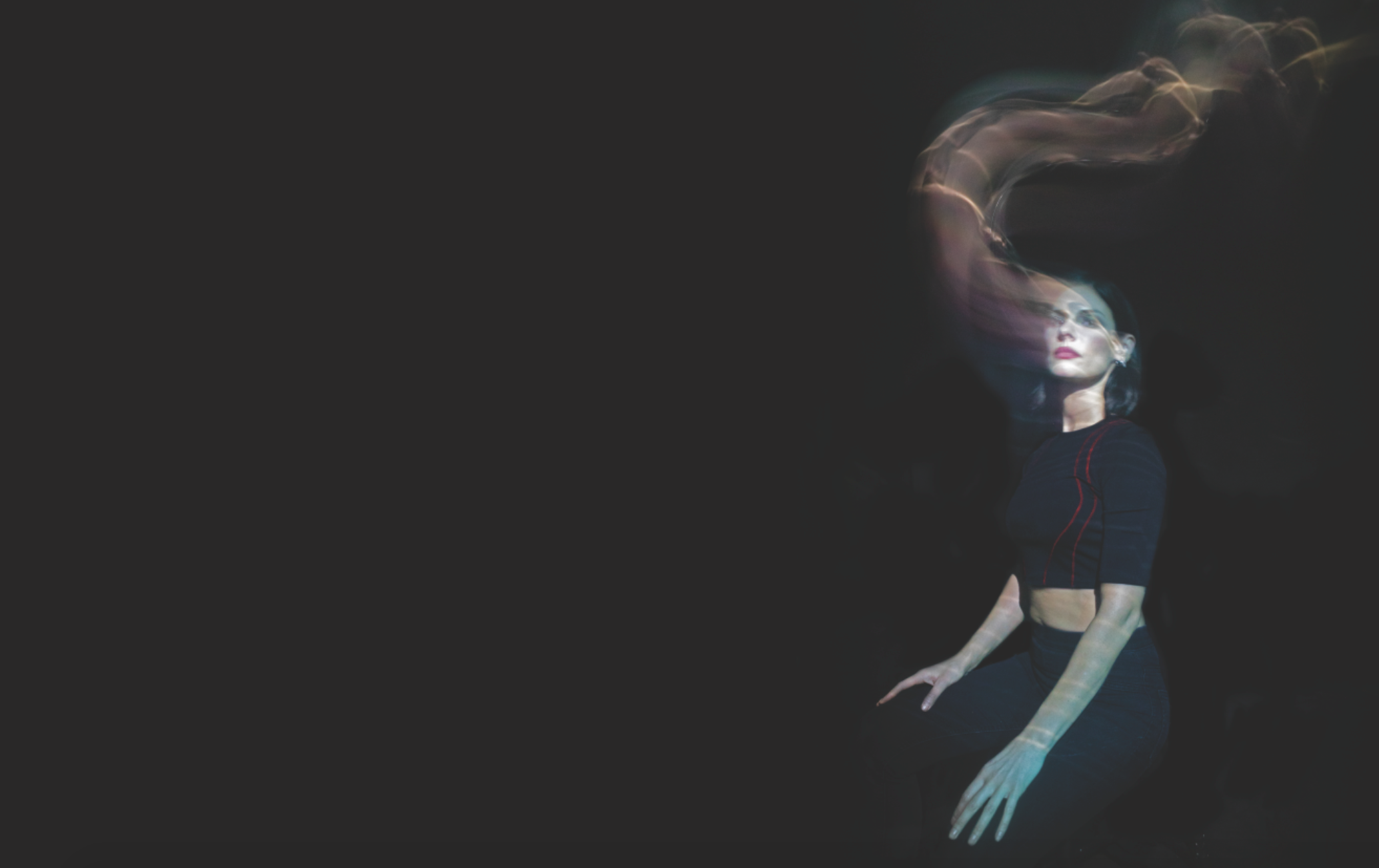
“I learnt from Paula to have a little bit of patience and give people a break, rather than drilling them for two hours, which is something I really enjoy!” laughs Rebekah on what’s she picked up, the pair getting together before performances to compare music they want to play — often an education for both. “It took me a little bit longer to understand the energy needed for big stages,” Rebekah says. “Breakdowns are really necessary. People are way more in a party mood. They want a lot more space and top-lines, so the tracks need something about them. In a club set I play a lot more grooves, and you can play all sorts of stuff in two hours, some electro, some industrial stuff, even some dubstep, moving in and out of four-four into broken beats. For festivals, very linear, big sounding tracks work best.”
In line with Elements’ imagery, she’s now working with Barcelona-based designers Hex — whose ethos is #believeinblack — on a range of club-wear for the label, incorporating ideas such as hidden pockets for money. “They’re in-line with this dark techno/ BDSM crossover idea,” she says on the sound’s penchant for chains, leather and harnesses. “Young people have a movement again,” she says of this integrated look and sound. Has she ever been to or played an actual BDSM party? “I never really wanted to go to Torture Garden, which is the ironic part of doing what I did with my modelling.”
Working as a model in the adult industry, starting out aged just 19, Rebekah naively thought nobody would see the work. It gave her time to concentrate on what she really loved, DJing, and she wasn’t the best candidate for a 9 to 5 anyway. “I always had to have Monday off,” she chuckles in retrospect. But it dogged her early career, with the feeling that she couldn’t be credible when she was just “another model that wants to DJ”.
“It meant the second time around, I wanted my music to get to people before I did,” she says, reflecting that when she was younger, she had more expectation that things should just come her way, an attitude replaced now with gratitude for everything she’s achieved through hard work and focus. “Maybe that helped me to get my music out there.” Berlin’s famously open permissiveness also provided a welcome antidote to Britain’s more sniggering attitudes. “At the end of the day, the music speaks louder and travels further.” In her earlier career, she suffered further sexism. As an enthusiastic teen wanting to discover more about music, she’d asked for a job in a Birmingham record shop she still won’t name; the request went down like a “lead balloon”.
“Women are taking a lot more control,” she says on where we are today. “They’re being more selfsufficient, learning what to do in the studio, having labels. There’s more empowerment.” There’s still work to be done, she points out. Revisiting the school where she studied music production, her tutor told her that there are still usually only one or two women per class. Despite this, she seems keen for people to see their barriers as personal, therefore surmountable, rather than structural. “I just want to help people,” she says. “It doesn’t matter if you’re male or female, you block yourself if you let people influence you in your thinking. You do have to be strong, you do have to be tough and you do have to know who you are.”
BLOOM OF YOUTH
Now in her late 30s, it’s still the bloom of youth that inspires her sets. “It’s this energy that you have when you’re younger, the anger and rebellion,” she says, pointing out that her favourite stuff from Surgeon and Regis was when they were in their early 20s. There’s a new wave of producers channelling this spirit [see On The Edge box out], and thanks to Bandcamp, which she loves, they’re able to circumnavigate traditional distributors. “Beatport is the holy grail, but now there’s a layer underneath of acid techno, hard techno, almost gabber, and hardcore. These kids are just taking influences from everywhere. I feel the same excitement as when Blawan came out.” Some DJs complain that their sound is too ‘shranzy’, she says, but it’s music made by the young for the young. “I’ve played for 16 to 22-year-olds for the last six years. The age doesn’t get older.”
This broad support extends to her Rinse FM show, which Rebekah started in 2017, messaging the station after Truss told her he was leaving. “Winning the award has gone beyond my expectations,” she tellsus, when we inform her about being voted Best Producer. “Even the nomination was just mind-blowing. It’s amazing to have the recognition for the hard work I’ve put in over the years. I’m super-grateful to all my fans that have voted and supported me throughout. I’m definitely not taking this for granted, as there are so many more areas of production I want to explore and develop.”
Over the last year, this has meant delving into modular synthesis. Premiering a live show using a modular set-up alongside loops of her tracks in Ableton at ADE, she’s still working out its full potential. “Sometimes you get a good day with the patch, sometimes you’re fighting against it. I like that unpredictability.” What seems likely, she reckons, is that exploring the capabilities of her now-overflowing studio will form the basis of a new album that will traverse tempos and rhythms. “Before, I thought DJing was enough, but now I realise it’s not,” she says on finally finding her centre of gravity in techno. “You need to put something back into the scene for it to grow. Why has techno been around for as long as it has? Because people come in and give a little bit back, that’s why I love it. There’s a new generation now, and it just continues to grow and evolve.”
Guiding their way is the elemental force that is Rebekah. Burning with the same undimmed passion that she had as a 17-year-old, as a DJ she’s out there exploring techno’s furthest shores, using her stature to aid those following in her wake. And as a producer, she’s showing that techno can be infused with a spectrum of emotion, no matter how hard it bangs.
